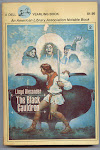My poem "Letter From the Country" (page 23 of OME, posted April 13th), was inspired by a Shakespeare sonnet:
XCVII.
How like a winter hath my absence been
From thee, the pleasure of the fleeting year!
What freezings have I felt, what dark days seen,
What old December's bareness everywhere!
And yet, this time remov'd was summer's time,
The teeming autumn, big with rich increase,
Bearing the wanton burden of the prime
Like widow'd wombs after their lord's decease;
Yet this abundant issue seem'd to me
But hope of orphans, and unfather'd fruit;
For summer and his pleasures wait on thee,
And, thou away, the very birds are mute;
Or, if they sing, 't is with so dull a cheer,
That leaves look pale, dreading the winter's near.
which is one of at least a dozen that I know by heart. "What potions have I drunk of Siren tears,/ Distill'd from limbecks foul as hell within!" Reading Shakespeare's sonnets can be an education in English literature, if one studies them enough to know what they say, and what they mean.
"When in disgrace with fortune and men's eyes,
I all alone beweep my outcast state,
And trouble deaf Heaven with my bootless cries,
And look upon myself, and curse my fate;...
Wishing me like to one more rich in hope,
Featured like him, like him with friends possessed;
Desiring this man's art, and that man's scope;
With what I most enjoyed, contented least--
Yet in these thoughts, myself almost despising,
Haply I think on thee; and then my state
Like to the lark at break of day, arising
From sullen earth, sings hymns at Heaven's gate;
For thy sweet love remember'd, such wealth brings,
That then I scorn to change my state with kings."
I know of no rougher magic.
***
My poem today from OME is "People-Watching," on page 18:
People-Watching
Don’t you remember me?
It’s rude, you know, no matter what the reason,
to tuck in your chin and hurry by
and cut me
dead.
In Salem once
we piled the rocks as high as we could reach,
and never heard a cry or groan.
Wasn’t that you?
When we were moving stones for old Ramses,
someone in the quarry bumped my arm,
causing me to drop
a load on him, and I believe
he had your face.
And you—remember: when the Sirens sang,
and we bound each other to the mast,
I could have tied slip knots, and where
would you be now?
Old antagonisms don’t excuse
your corner-eyed,
hesitating glances,
as if you never saw me
in your lives.
Come, don’t hold grudges!
If I broke your bones, why,
that’s how these emporia,
these monuments and pyramids
get built.
Saturday, April 18, 2009
How Like a Winter
Page 18 (copyright 2001 Joanne Ramey Cage)
2nd prize, State contest, 1995.
Posted by Joanne Cage --
Joanne Cage
at
1:41 PM
![]()
Labels: Poems by me, poems I know by heart, Shakespeare
Subscribe to:
Post Comments (Atom)













3 comments:
I love “People Watching.” The best villains are like this – friendly, even compassionate, but evil and unable to feel guilt of any kind. I don’t know if this is your best poem (there are others I like a great deal), but this is certainly one of your most enjoyable poems, to me at least.
Yes, I like this one too. (People-Watching) It's definitely one of the most rememberable. But I think it once had a different title? Maybe.
Post a Comment